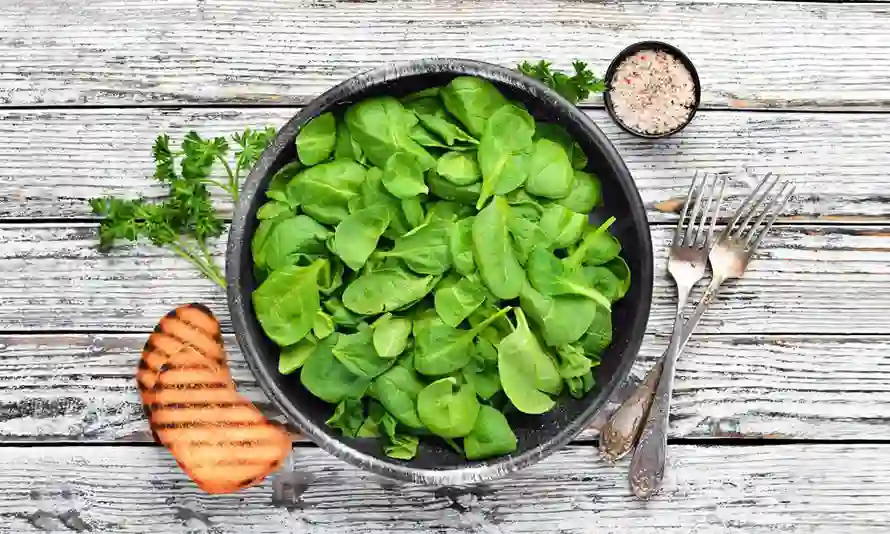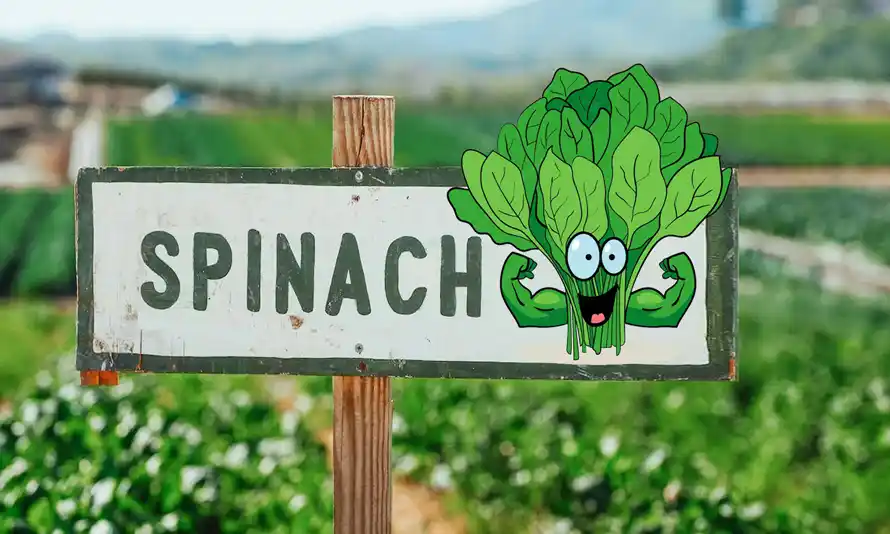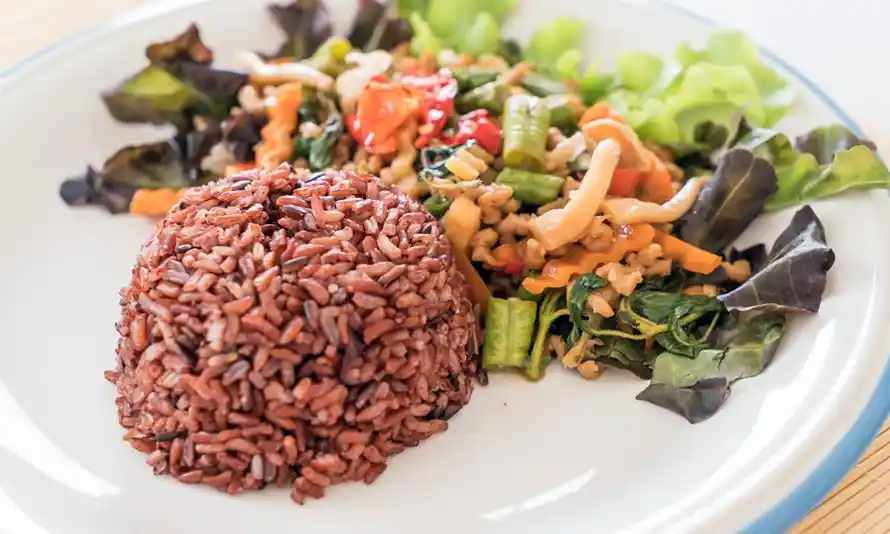The first time I ate spinach, I didn’t like it at all. Now, I eat it every day and consider it one of my favorite foods! Here are 15 amazing benefits of eating spinach to help you understand why you should add this green veggie to your diet today.

Introduction
Often overlooked, spinach is a nutritional powerhouse that offers a slew of health benefits. Considered the most nutritionally dense food in existence, it’s loaded with vitamins and minerals including vitamin A, vitamin C, iron, calcium, and potassium. It’s also full of lutein and zeaxanthin which help protect your eyes from cataracts and macular degeneration. And then there are all those antioxidants – one cup contains an entire day’s worth! As if that wasn’t enough to convince you to eat more spinach, it also helps reduce inflammation throughout the body – think joint pain or arthritis – thanks to its high omega-3 content.
What is Spinach?
Spinach is a leafy green vegetable that is packed with vitamins, minerals, antioxidants and other nutrients. It has been a key ingredient in traditional dishes for centuries and continues to be used in many cuisines today.
History of Spinach
Spinach was first cultivated in Persia around the 10th century. It is believed to have been used as a medicinal plant by the ancient Greeks, Romans and Arabs. Today, it’s popular for its health benefits and versatility in cooking. One cup of raw spinach contains about 100 calories and provides 37 percent of your daily needs for vitamin K, folate, potassium, calcium and iron.
Nutritional Value of Spinach
Spinach is loaded with nutrients and vitamins. It’s an excellent source of vitamin A, vitamin C, calcium, iron, magnesium, and potassium The folate in spinach helps prevent heart disease and cancer. Folate also helps the body make new cells and aids in DNA synthesis, so it can help your body grow healthy cells to replace damaged ones caused by sickness or injury.
Spinach is also a good source of carotenoids that give it its dark green color. These carotenoids have antioxidant properties that protect your body from free radicals in the environment. Free radicals are substances that may cause cell damage or even lead to cancer at high levels.

15 Health Benefits of Spinach
Spinach is a nutrient-dense powerhouse food that has a variety of health benefits.
- High in fiber and vitamin K, which are important for heart health.
- Contains high levels of vitamin K, which aids in blood clotting.
- potassium helps maintain a healthy blood pressure
- High in folate, which helps to prevent birth defects.
- Folate helps reduce the risk for heart disease and colon cancer.
- Folate can help your body generate healthy cells to replace damaged ones caused by illness or injury because it aids in DNA synthesis and helps the body make new cells.
- Contains cancer-fighting compounds like sulforaphane, lutein, and zeaxanthin which help protect cells from oxidative damage that can lead to chronic diseases like diabetes and cancer.
- An excellent source of iron that helps produce hemoglobin for red blood cells to carry oxygen throughout the body and thus avoid risk of iron deficiency Anemia
- Contains lutein which helps prevent macular degeneration or blindness from developing as you age.
- Rich in vitamins A and K which help maintain healthy bones, teeth, and eyes.
- Lowers risk for type 2 Diabetes: Eating plenty of spinach can lower the risk of developing type 2 diabetes. This is because it aids in weight loss and reduces the risk factors associated with type 2 diabetes such as high blood pressure and cholesterol levels. High fiber intake can also reduce insulin resistance, which is a major factor in determining if someone develops type 2 diabetes. Additionally, spinach has other phytonutrients that help regulate blood sugar and maintain healthy levels.
- a great source of anti-inflammatory properties and antioxidants such as beta-carotene, zeaxanthin, lutein, and alpha-lipoic acid.
- Magnesium helps regulate sleep cycles. So, spinach is an ideal food for people who have insomnia or are prone to anxiety attacks.
- Helps baby development
- Increases hydration and strengthens the Immune System.

However, because spinach does not contain any protein or essential fats, it should be consumed as part of a balanced diet that includes protein-rich foods like beans, fish or chicken. Other healthy leafy greens include romaine lettuce, collard greens and kale.
How to Select and Store Spinach
Spinach is a healthy leafy green vegetable. It’s rich in vitamins, minerals, and antioxidants. This dark green leafy vegetable is low in calories and high in fiber, which means it helps you feel fuller for longer periods of time. However, spinach must be washed thoroughly before use and should be stored loosely wrapped in a damp paper towel in the crisper section of your refrigerator. Be sure to look out for wilted spinach or brown spots as these are signs that the spinach has gone bad and should be thrown away immediately.
How to Prepare Spinach
Like any other leafy green, spinach must be thoroughly washed before eating. To remove dirt and grit, it is best to soak the leaves in a large bowl of water with a squirt or two of dish detergent. If you have a salad spinner, spin the leaves dry after they have soaked for a few minutes. You can also use your hands to scrub the leaves clean in your sink using cold water and dish soap before rinsing with warm water. Be sure to thoroughly dry the leaves by blotting them with paper towels before storing them in an airtight container at room temperature away from sunlight.

Safety Concerns Related to Spinach
There are a few safety concerns related to eating spinach, so it’s important to know what they are.
-Eating raw or undercooked spinach could increase your risk for food borne illness. -It should not be eaten in large quantities because it can cause stomach upset or a rash in sensitive people. -It may also interfere with the absorption of nutrients from other foods that you eat at the same time.
Spinach is a great source of vitamins, minerals, antioxidants and anti-inflammatory properties that offer many health benefits when consumed in moderation and cooked properly.
Final Thoughts
If you are looking for a way to get more nutrients and have a few extra minutes in the day, try adding spinach to your diet. It is nutritious, versatile, and can be added to almost any dish. All it takes is one pot of boiling water, some fresh spinach leaves and you are ready to go. There are so many ways that eating spinach can benefit your health that the list could go on for days. So if you want to reap the benefits of eating this tasty leafy green vegetable, start with these 15 amazing benefits.





